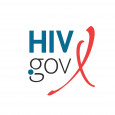The White House Office of National AIDS Policy (ONAP) convened a full-day meeting on December 5, 2024, focused on quality of life among people with HIV in the United States. The meeting, Enhancing the Lives of People Living with HIV: A Quality of Life Symposium, gathered more than 120 participants in person at the White House and virtually from across the country to examine quality of life among people with HIV and opportunities for collaborative efforts to improve quality of life across dimensions, including mental health, housing, employment, and food security.
At the meeting, HIV.gov’s Tevin Warren, DrPH, spoke with Francisco Ruiz, MS, director of ONAP, who hosted the event, and Martha Sichone Cameron, MPH, executive director for the International Community of Women Living with HIV—North America and vice chair of the U.S. People Living With HIV Caucus, who participated. View their conversation at the top of this post and on YouTube.
The symposium centered people living with HIV, including long-term and lifetime survivors, and engaged researchers, health care providers, advocates, leaders of federal programs, and others in a series of panels and discussions. The conversations explored opportunities for accelerating progress on five National HIV/AIDS Strategy indicators on quality of life among people with HIV, which seek to improve self-rated health status, improve access to mental health services, reduce food insecurity, enhance employment status, and reduce unstable housing or homelessness.
Reflecting on the symposium, ONAP Director Ruiz observed that its focus on people living with HIV today complemented the White House’s December 1 World AIDS Day observance, which included a remembrance of those lost to HIV with a display of the NAMES Project Quilt on the South Lawn.
He remarked, “World AIDS Day reminds us of both the profound pain of lives lost and the enduring promise to those living with HIV today. As we work toward achieving our goal of ending new HIV transmissions, we must also ensure that people with HIV can live well for years to come. The symposium challenged all of us to expand our vision from survival to true thriving—today, tomorrow, and long into the future.”
View Dr. Warren’s brief recap of the symposium below:
This blog post was published December 20, 2024, on HIV.gov.








Comments
Comments